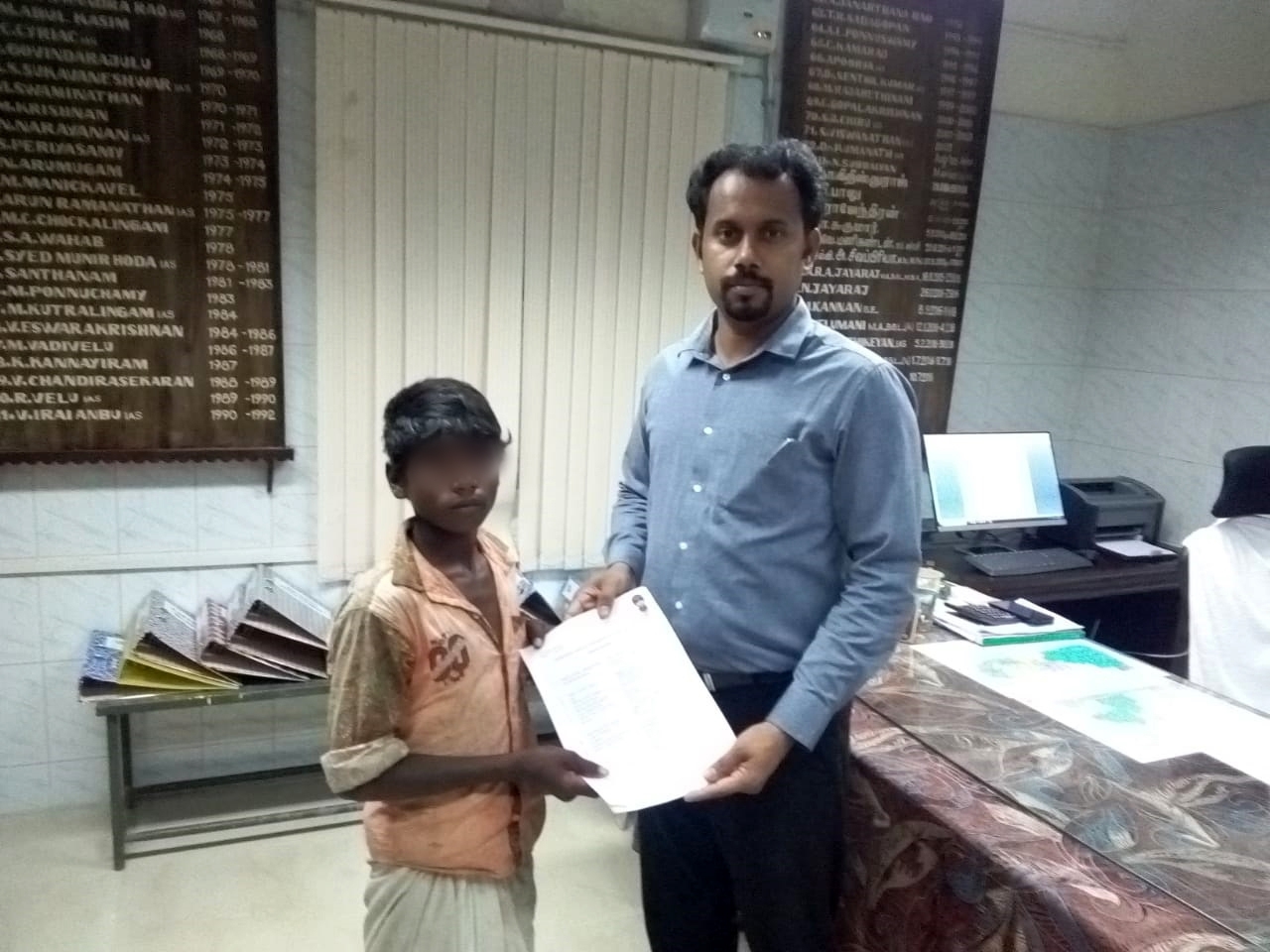Five Boys Rescued from Goat-Grazing
Summary:

Five boys who were isolated as goat shepherds for years are now resting in safety, thanks to a rescue operation led by local officials and an IJM partner in southern India.
These boys had been forced to graze 650 goats and 12 cows across hundreds of kilometres of rural land under the control of a slave owner who barely let them eat or rest.
IJM’s grassroots partner Foundation for Sustainable Development (FSD) discovered the case and monitored the boys for several weeks to confirm the truth. On April 8, FSD staff brought the case to local authorities—also trained by IJM—who moved the operation forward.
When the rescue team arrived, the boys had already moved 3 kilometres from where they were last spotted. Officials met up with them, interviewed them about their experience, and then brought them to safety at a government office.
The boys are between 12 and 23 years old, but many shared that they had begun tending goats when they were only 5 or 6. For years, they had eaten only one small meal each day and often slept outside on simple grass mats at night.
“In recent years, there has been a rise in the number of young boys being used in goat grazing,” explains IJM’s Preeti Daniel. “The nature of the job leads them to move from place to place while grazing the flock, and they end up living far from their homes for years.”
Officials learned how the wealthy livestock owner had preyed on the boys’ impoverished families by offering them loans of 10,000 to 15,000 rupees (about $150–200) in exchange for their sons’ labour. He then used these debts and charged false interest to keep the boys trapped.
Police immediately arrested the owner and placed him in custody. He has been charged under India’s anti-slavery, anti-trafficking and child protection laws.
In safety, the boys have received food and medical care, and also got release certificates to break their bonds to the slave owners and guarantee them protection under the law. FSD staff and local officials will help them reconnect with their families and begin recovering lost time in freedom.